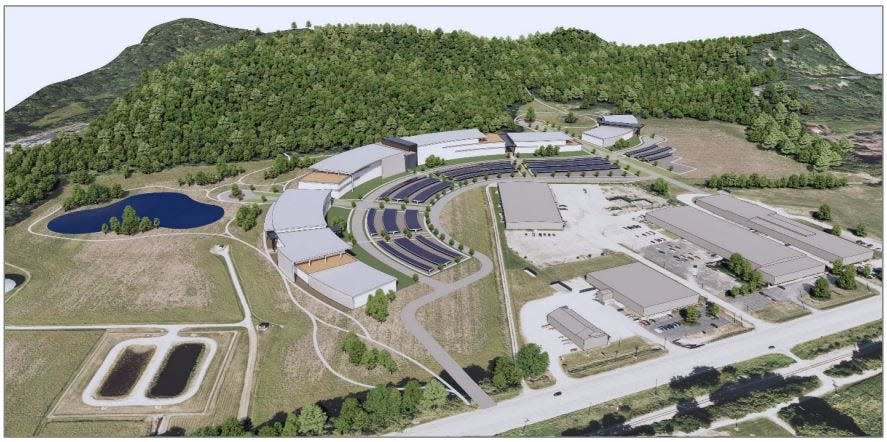These two proposals could pump millions in development into Peoria. Here's what to know
Two proposed tax-increment financing districts in Peoria — the Distillery TIF and Galena Road TIF — will be reviewed by the Peoria City Council on Tuesday.
Both TIFs, which will receive their first readings Tuesday night, promise to pump millions of dollars of development into Peoria, including a possible massive expansion of Black Band Distillery in the Distillery TIF and a $40 million business park in the Galena Road TIF.
The Galena Road TIF would encompass a chunk of land near Illinois Route 29, spanning roughly from East Gardner Lane and East Koch Drive, and projects to see $35 million of public funds and an estimated $65 million in private investment generated.
More: Eyesore or historic? Decision looms on this nearly 100-year-old Peoria building
The Distillery TIF, which covers an area that includes Southwest Washington Street from roughly South Western Avenue to near MacArthur Highway, projects to see roughly $12.4 million in public TIF eligible costs and $7.9 million in private TIF eligible costs.
The Distillery TIF, however, faced some backlash from a local environmental group that worried it could open the door to new air pollutants and a CO2 pipeline receiving TIF funds.

City staff and the environmental group negotiated some new terms for the TIF, and some concessions were made between the two parties. But the environmental group was unable to secure all the changes it wanted made.
"This has been a very positive interaction. We've had several meetings with manager (Patrick) Urich and attorney (Patrick) Hayes) over the last couple of months, and they've accepted some of our changes and we've dropped a lot trying to focus on what are the most key, critical aspects of what we're recommending," said Joyce Harant of the Central Illinois Healthy Community Alliance.
Peoria City Manager Patrick Urich also said negotiations went well, but added that the deal probably didn't go as far as the environmental groups would have liked.
More: Why a proposal for Peoria development is creating concerns about pollution
"From a staff perspective, I think it went fine. We ended up incorporating a number of their suggestions into the TIF redevelopment plan. I don't know if it went as far as they would have wanted to go and they may say so (Tuesday), but ultimately, we felt we could incorporate a good chunk of what they were asking for an were able to incorporate that into the redevelopment plan," Urich said.
One of the provisions city staff added to the TIF was a line that says: "To encourage the environmental remediation of existing properties within the redevelopment area and encourage require environmentally responsible industrial development."
The environmental groups in this case wanted the word "encourage" to be swapped with "required."
There was also some disagreement surrounding the language in the TIF regarding a potential CO2 pipeline being built.
More: 'Absolute madness': Frustration mounts over shuttered Downtown Peoria high rise building
As written, the provision on CO2 pipelines reads: "The City will not provide assistance for any project costs that involve transportation of CO2 unless the project is fully compliant with public health and safety adopted by the U.S. Department of Transportation Pipeline and Hazardous Materials Safety Administration and and provides additional protections as determined by the Peoria City Council."
The environmental groups wanted it to read this way: "The City will not provide assistance for any project costs that involve transportation of CO2 unless the project is fully compliant with public health and safety regulations resulting from the May 26th, 2022, Federal Rule making adopted by the U.S. Department of Transportation Pipeline and Hazardous Materials Safety Administration and in effect, not provide assistance for the sequestration of CO2 in the ground and provides additional protections as determined by the Peoria City Council. These additional protections must include but are not limited to science-based setbacks that will ensure no worker or public exposure to the OSHA NIOSH 15 minutes CO2 short-term exposure limit and an Emergency Response Plan that includes a sustainable human and financial resource plan that enables this CO2 exposure limit and is financed by the business for as long as the pipeline is in operation."
More: Here's why work is being done at this busy Peoria intersection
This article originally appeared on Journal Star: Two proposals could pump millions in development into Peoria
